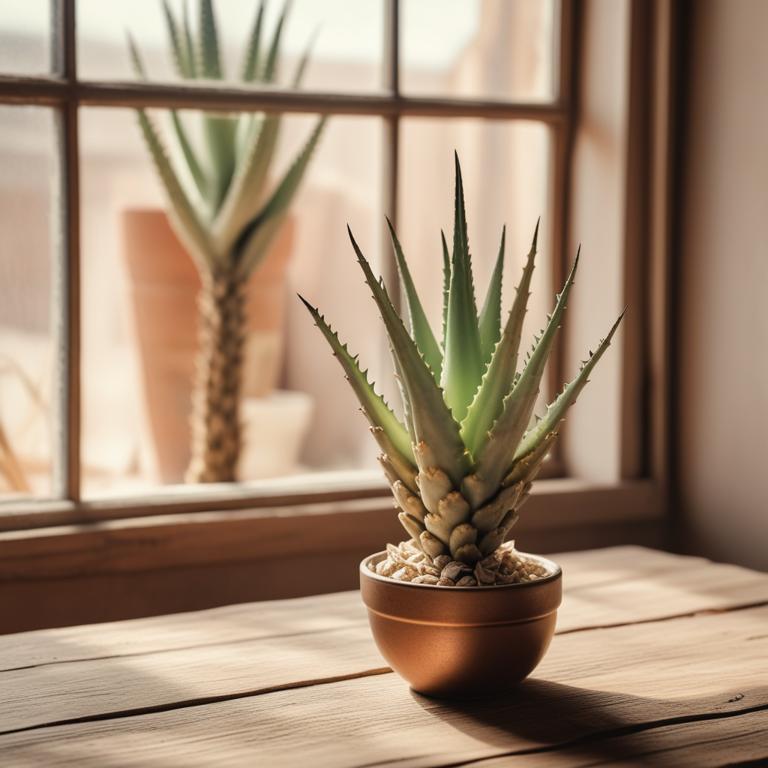Updated: Dec 1, 2024
Eye Bags: Causes, Treatment Options, and Medicinal Herbal Remedies

Eye bags can be a real nuisance, making you look tired and worn out, even when you're feeling fine.
They're caused by a combination of factors, including lack of sleep, poor diet, and stress. When you don't get enough rest, your body produces more cortisol, a hormone that can cause your eyes to puff up. On top of that, a diet high in salt, sugar, and processed foods can also contribute to eye bags. If you're looking for a natural way to tackle this issue, herbal remedies might be the answer.
Certain herbs like chamomile, peppermint, and licorice root have anti-inflammatory properties that can help reduce puffiness. You can use these herbs to make teas, eye creams, or even compresses to soothe and calm your eyes. For example, you can steep dried chamomile flowers in hot water to make a calming tea that can be applied to the eyes with a cotton ball. Peppermint oil can also be used as an eye cream to reduce inflammation and cool down the skin.
Licorice root can be used to make a soothing compress that can be applied to the eyes to reduce puffiness.
Table of Contents
What are the primary causes of eye bags?
The main causes of eye bags are a combination of factors that can affect anyone.
Dehydration is one of the main causes, as not drinking enough water can cause the body to lose fluid, leading to puffy eyes. When we don't get enough sleep, our body doesn't have time to repair and recharge, causing fluid to build up under the eyes, resulting in eye bags.
Genetics also play a role, as people with a family history of eye bags may be more prone to them. Allergies can cause eye bags, especially if you have seasonal allergies, as your body reacts to allergens by releasing histamine, which can cause puffiness. Sinusitis, an infection or inflammation of the sinuses, can also cause eye bags due to the swelling and fluid buildup in the face.
Finally, nutritional deficiencies, such as a lack of vitamin K or omega-3 fatty acids, can cause eye bags, as these nutrients help to reduce inflammation and keep the skin healthy.
What benefits do herbs have for eliminating eye bags?
Using herbs to get rid of eye bags can be really helpful.
They can reduce the appearance of puffiness and dark circles, giving you a more refreshed and awake look. Herbs can also help to reduce swelling and inflammation, which are often the main causes of eye bags.
By applying a cooled compress or a paste made from these herbs, you can help to constrict blood vessels and improve circulation in the area. This can reduce the amount of fluid that accumulates under the eyes, making eye bags less noticeable. Some herbs may also have anti-aging properties, which can help to firm and tone the skin, reducing the appearance of fine lines and wrinkles around the eyes.
Additionally, herbs can be used to soothe and calm the skin, reducing redness and irritation that can contribute to eye bags.
What are the chief medicinal herbs for reducing eye bags?
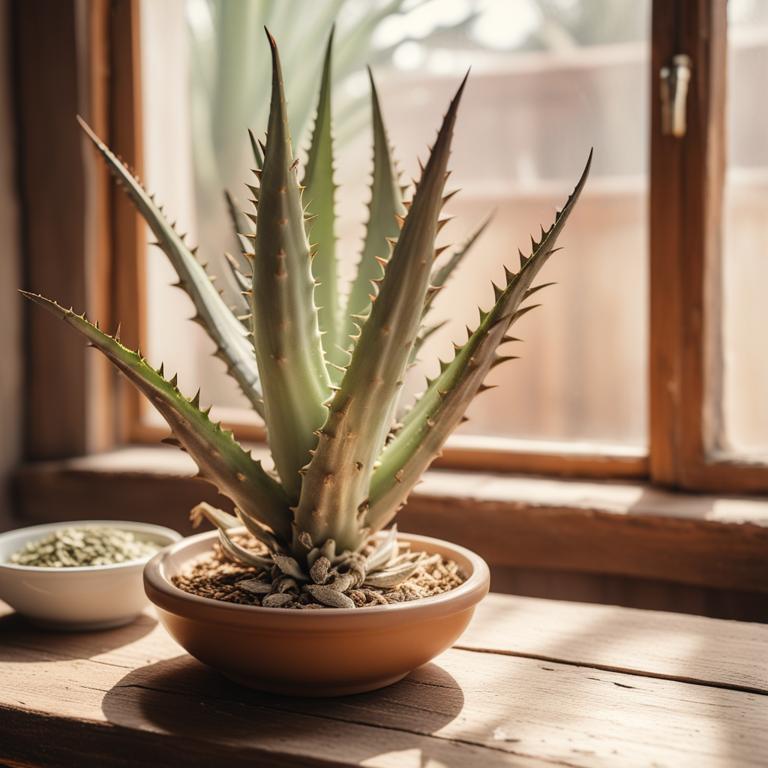
When it comes to getting rid of eye bags, using herbs can be a great way to reduce puffiness and dark circles.
One of the most well-known herbs for skin care is Aloe barbadensis, also known as aloe vera. It's got anti-inflammatory properties that help calm and soothe the skin, making it a great remedy for reducing eye bag swelling. Another herb, Echinacea purpurea, is often used to boost the immune system, which can help combat underlying issues that might be causing eye bags in the first place. Ginkgo biloba is an herb that's often used to improve blood flow and circulation. When blood flow is good, it can help reduce dark circles and puffiness around the eyes.
Rosemary, or Rosmarinus officinalis, has antioxidant properties that can help protect the skin from damage and promote healthy skin cells. This can also help reduce the appearance of eye bags. Milk thistle, or Silybum marianum, is another herb that's been shown to have anti-inflammatory properties, which can help reduce eye bag swelling and promote healing. Using these herbs can be as simple as applying aloe vera gel or rosemary essential oil to the skin around your eyes. Some people also take supplements or make teas from these herbs to reap their benefits.
While everyone's body is different, these herbs have been used for centuries to promote healthy skin and reduce puffiness, making them worth trying for anyone struggling with eye bags.
What herbal treatments can help alleviate eye bags?

Herbal preparations are a great way to reduce and prevent eye bags.
One way to use them is through a decoction, which is made by boiling herbs in water. Decoctions are good for eye bags because they can help to reduce puffiness and swelling. For example, a decoction made with chamomile or calendula can calm and soothe the skin around the eyes, making it look smoother and more refreshed. Another way to use herbal preparations is through a tincture, which is made by soaking herbs in a liquid, usually alcohol. Tinctures are good for eye bags because they can help to reduce inflammation and improve circulation. For example, a tincture made with arnica or echinacea can help to reduce swelling and bruising around the eyes, making it look more even and smooth. Herbal infusions are also a great way to reduce eye bags. An infusion is made by steeping herbs in hot water, then straining and cooling the liquid.
Infusions are good for eye bags because they can help to relax and calm the skin around the eyes. For example, an infusion made with lavender or peppermint can help to reduce puffiness and leave the skin feeling refreshed. In addition to decoctions, tinctures, and infusions, herbal gels can also be used to reduce eye bags. A gel is a liquid that's been thickened to a jelly-like consistency. Herbal gels are good for eye bags because they can be applied directly to the skin to help reduce puffiness and inflammation. For example, a gel made with aloe vera or green tea can help to soothe and calm the skin around the eyes. Finally, herbal poultices can also be used to reduce eye bags. A poultice is a paste-like mixture of herbs and water that's applied to the skin. Poultices are good for eye bags because they can help to reduce swelling and inflammation by drawing out toxins and excess fluids from the skin.
For example, a poultice made with cucumber or mint can help to cool and soothe the skin around the eyes, making it look smoother and more refreshed.
Additional Resources:
What herbs should you limit your intake of if you have eye bags?
If you have eye bags, you might want to be careful with certain herbs.
For example, Hypericum perforatum, also known as St. John's Wort, can cause your eyes to feel dry and itchy, making eye bags worse. It's also known to cause sensitivity to light, which can be especially bothersome if you already have dark circles under your eyes. Valeriana officinalis, or valerian root, is often used as a sleep aid, but its sedative properties can make you feel groggy and tired, which can lead to puffy eyes. This is because valerian root can reduce blood flow to the face, causing your eyes to appear more puffy. Ephedra sinica, or ephedra, is a stimulant that can increase heart rate and blood pressure.
This can cause your blood vessels to dilate, leading to even more puffiness under your eyes. It's best to avoid ephedra if you already struggle with eye bags. Foeniculum vulgare, or fennel, is a natural diuretic, which means it can cause your body to lose water and electrolytes. This can lead to dehydration, causing your eyes to become even puffier. Zingiber officinale, or ginger, can cause blood vessels to dilate, which can make eye bags worse.
It can also cause inflammation in the body, leading to more puffiness and swelling under the eyes.
FAQ
Are there any specific herbs that can prevent eye bags?
Cucumber and chamomile are known to help reduce puffiness under the eyes.
The cooling properties of cucumber can constrict blood vessels, while chamomile's anti-inflammatory properties can soothe and calm the skin.
Applying a chilled cucumber slice or a chamomile tea compress to the affected area may help alleviate eye bags.
Is it safe to use herbal remedies for eye bags during pregnancy?
While herbal remedies may be tempting for eye bags during pregnancy, it's best to be cautious.
Some herbs can be toxic to the fetus, so it's essential to know their safety levels. Research the specific herb you're interested in and its potential impact on pregnancy.
It's always better to err on the side of caution when it comes to your health and your baby's.
Are there any herbs that can reduce the frequency of eye bags?
Some herbs like peppermint and chamomile have anti-inflammatory properties that may help reduce eye bags.
Peppermint can improve circulation and reduce puffiness, while chamomile can calm the skin and reduce swelling.
Drinking peppermint tea or applying chamomile compresses to the eyes may provide relief from eye bags.
Can i combine different herbal remedies for eye bags?
You can combine different herbal remedies for eye bags, but be careful with the amounts and potential interactions.
For example, combining a cooled tea bag made from chamomile with a few slices of cucumber might help reduce puffiness.
However, if you're using a product containing witch hazel, you might want to limit the amount to avoid irritating your skin.
Related Articles
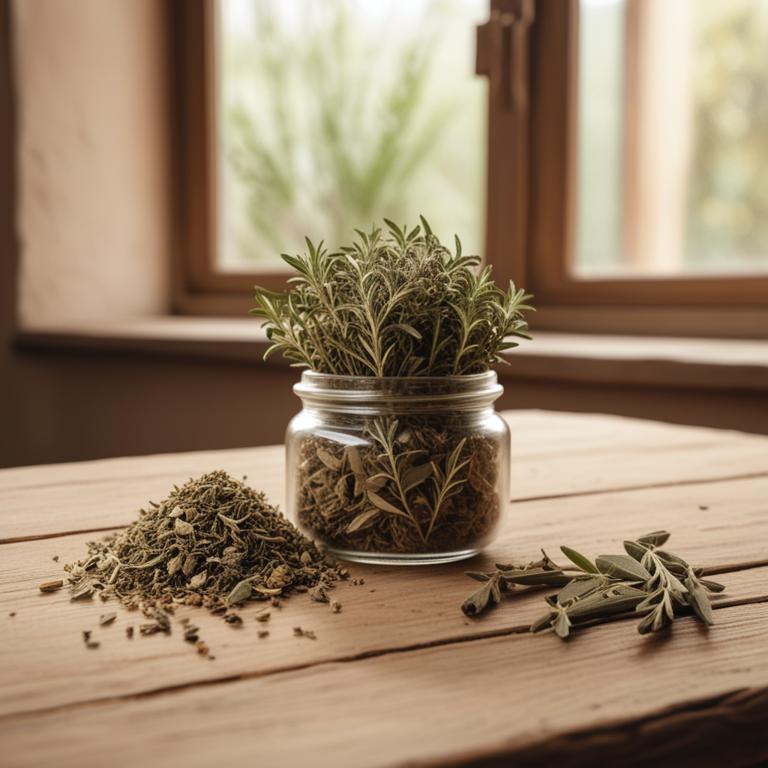
Grey Hair Causes, Treatment, and Medicinal Herbal Preparations

Rashes: Causes and Homeopathic Herbal Solutions

Dry Skin Relief: Understanding Causes and Herbal Preparations
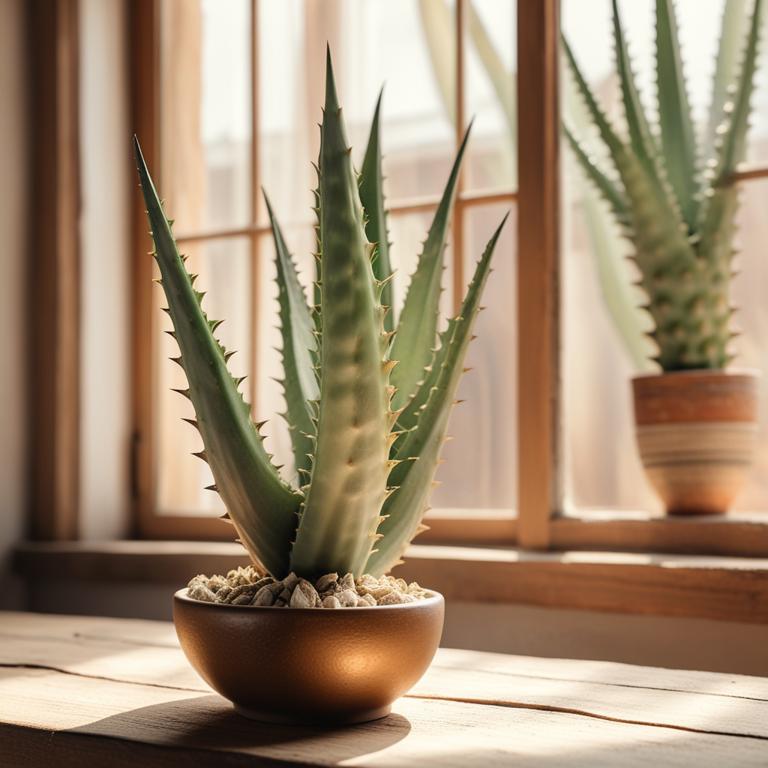
Ringworm Treatment with Medicinal Herbs and Herbal Preparations
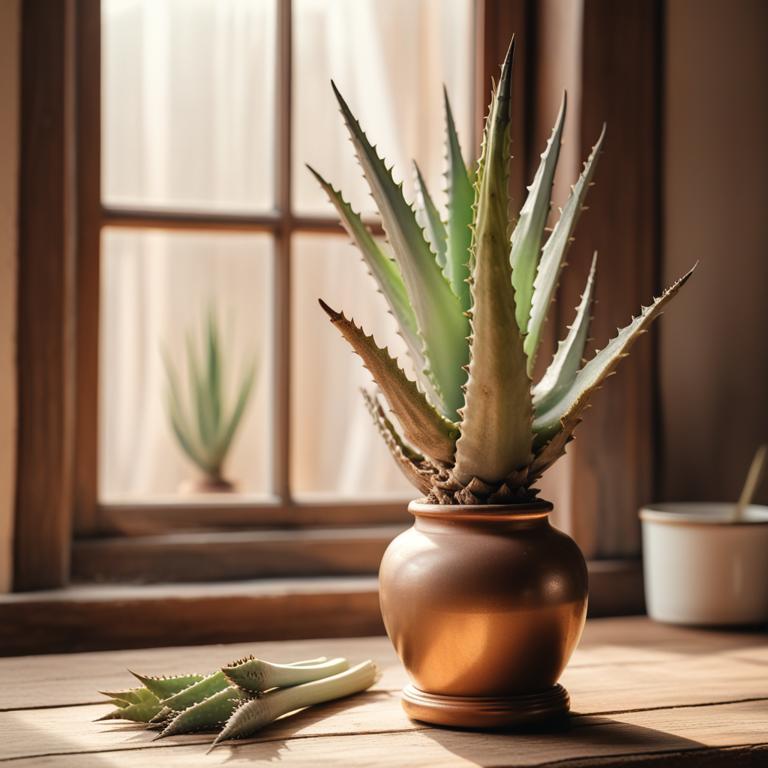
Acne Remedies: Causes, Medicinal Herbs, and Natural Herbal Preparations
